Excellence isn't a destination you arrive at once and maintain through willpower. Excellence is a flywheel. The six-stage cycle that transforms ancient Greek wisdom into systematic excellence methodology.
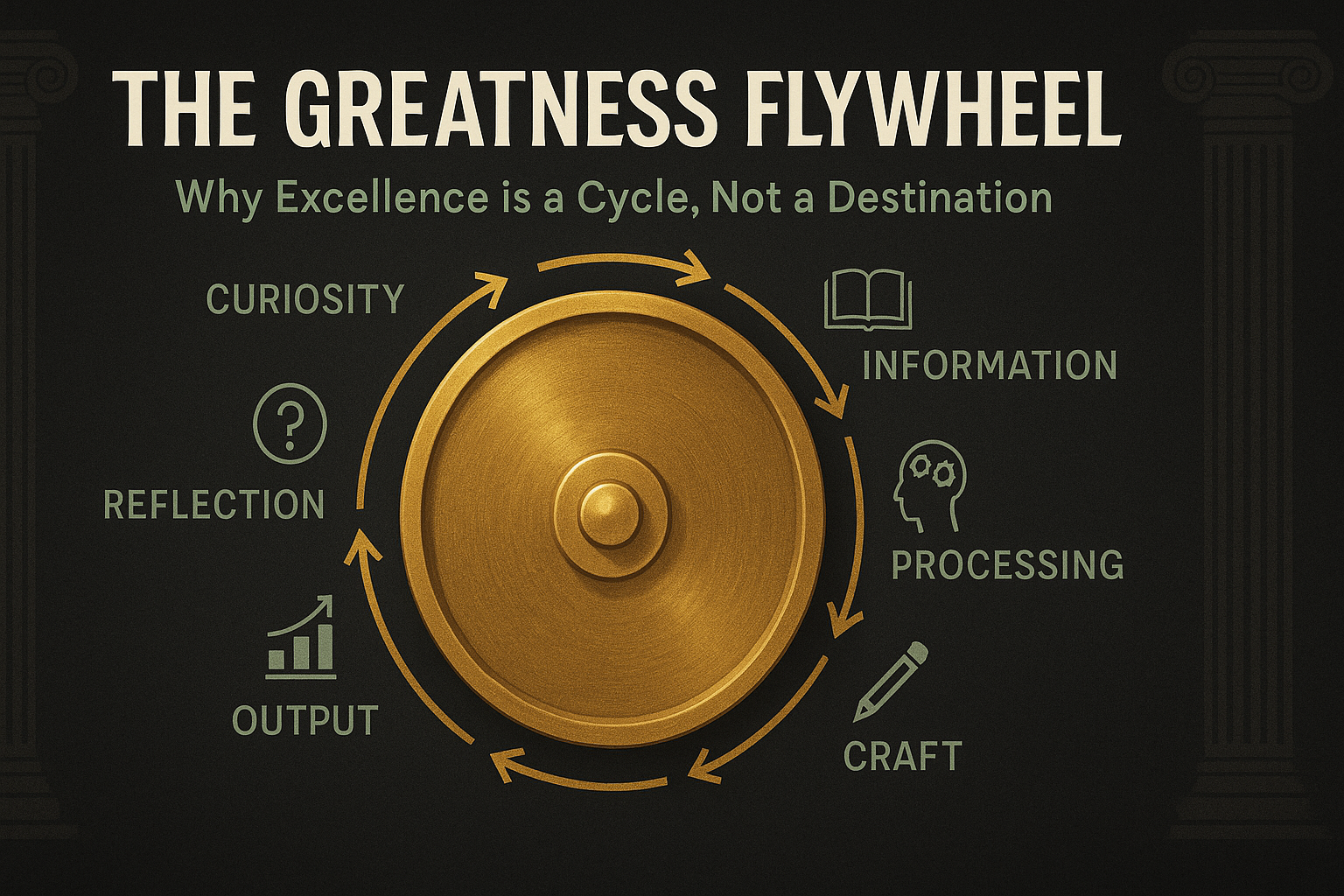
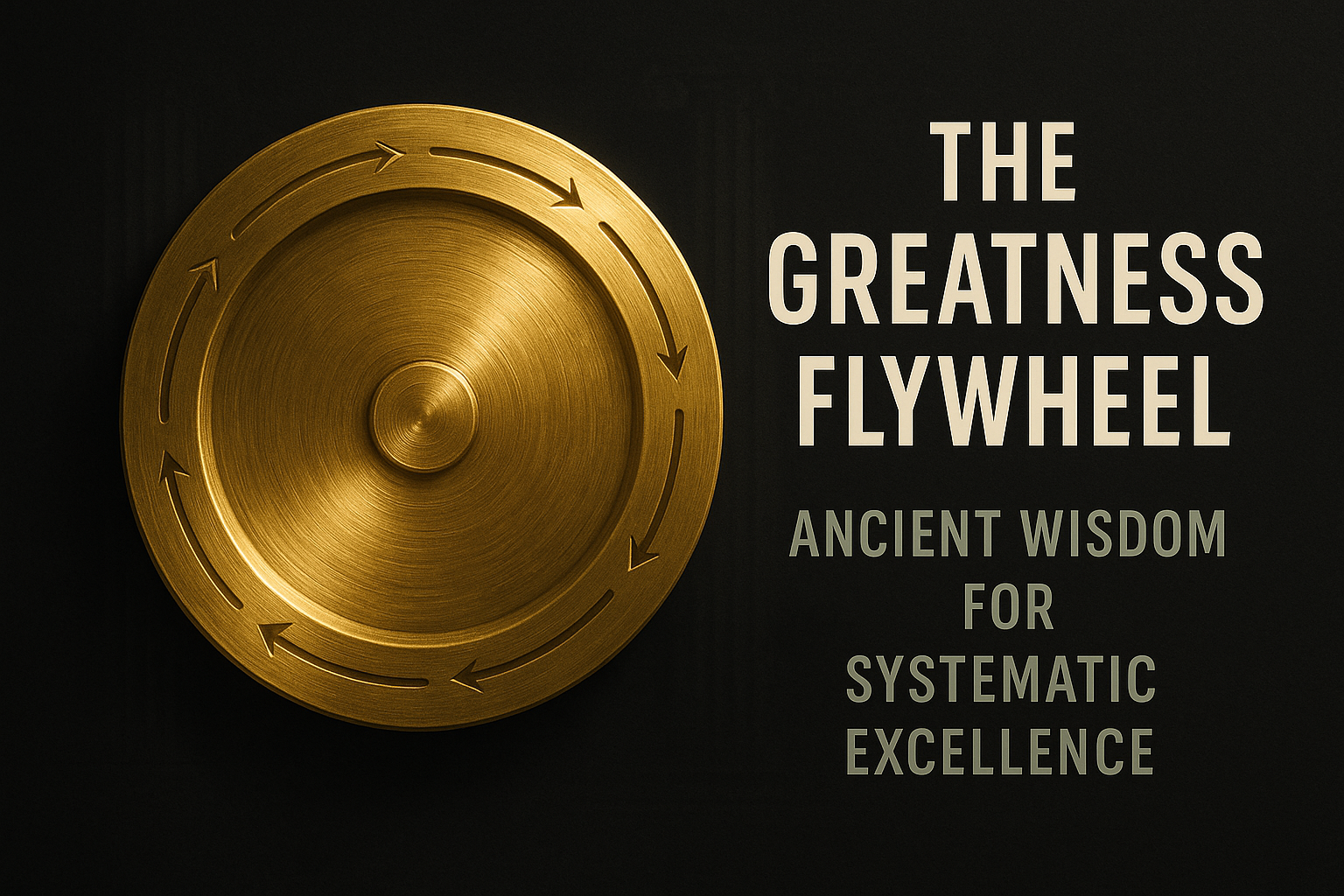
Derek Neighbors' breakthrough methodology that transforms excellence from destination to self-reinforcing cycle using ancient Greek wisdom and modern flow science
Excellence isn't a destination you arrive at once and maintain through willpower. Excellence is a flywheel. The six-stage cycle that transforms ancient Greek wisdom into systematic excellence methodology.

Real curiosity isn't about asking smart questions, it's about pursuing the brutal ones you've been avoiding because they might change everything.
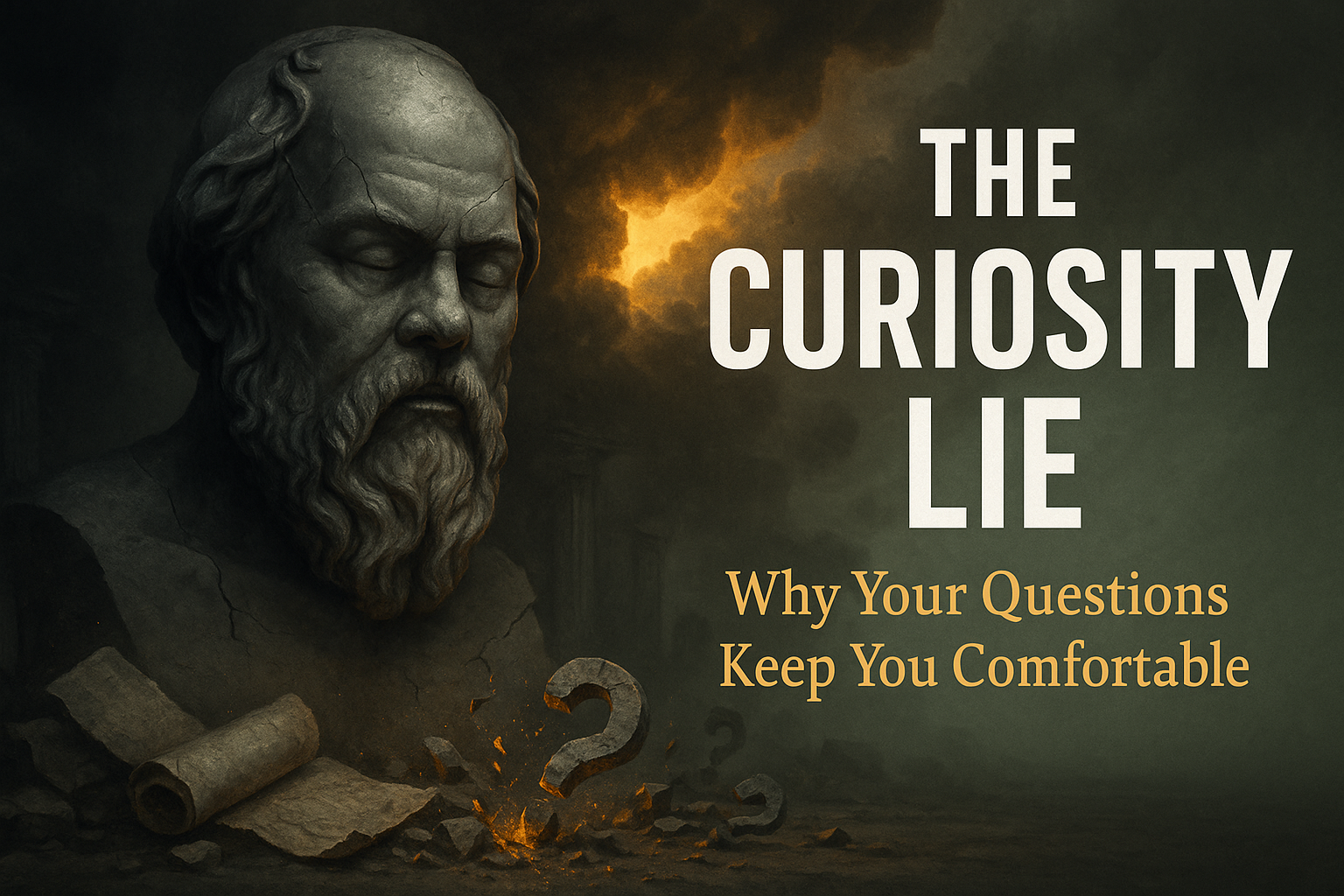
Most people consume information like they eat at a buffet, grabbing everything that looks appealing without considering nutrition or purpose. Then they wonder why their thinking is sluggish and their decisions are poor. Greatness requires intentional information architecture.
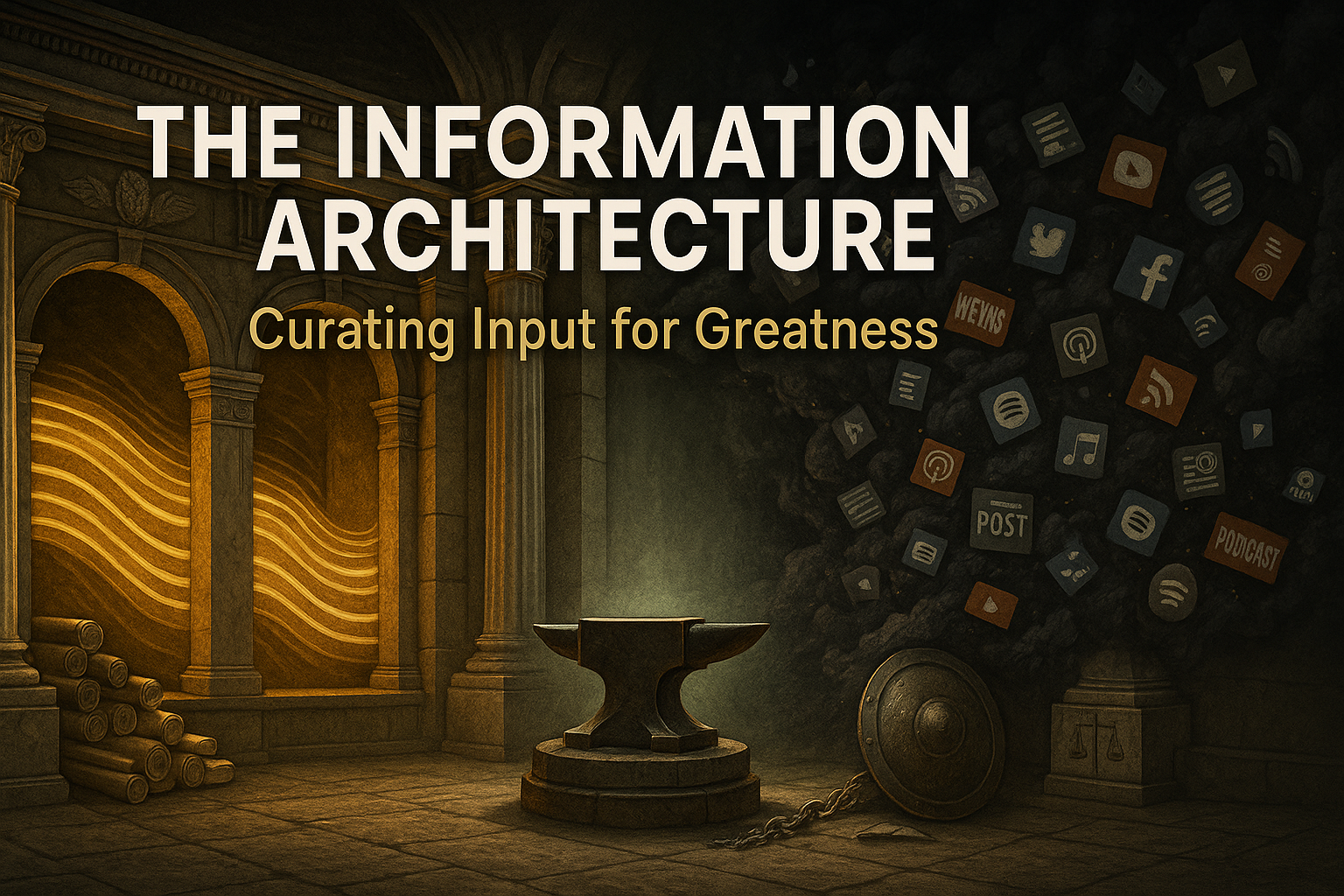
You consume endless information but produce mediocre results. The problem isn't what you know, it's how you process what you know. Smart people excel at input but fail at transformation. Time to build your Processing Engine.
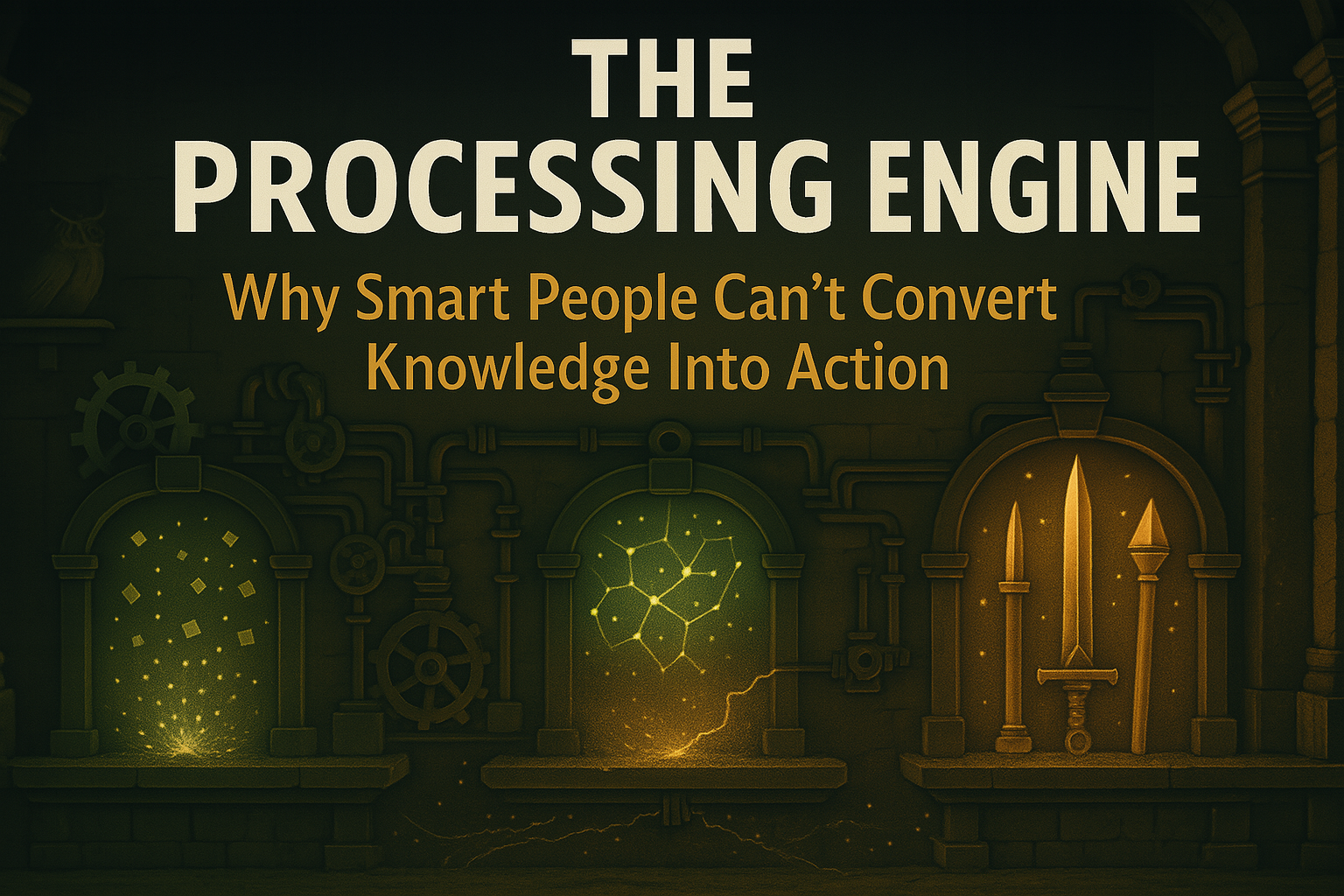
You don't have a knowledge problem. You have a craft problem. Most people understand excellence intellectually but lack the embodied competence to execute it consistently. Techne bridges the gap between knowing and doing.
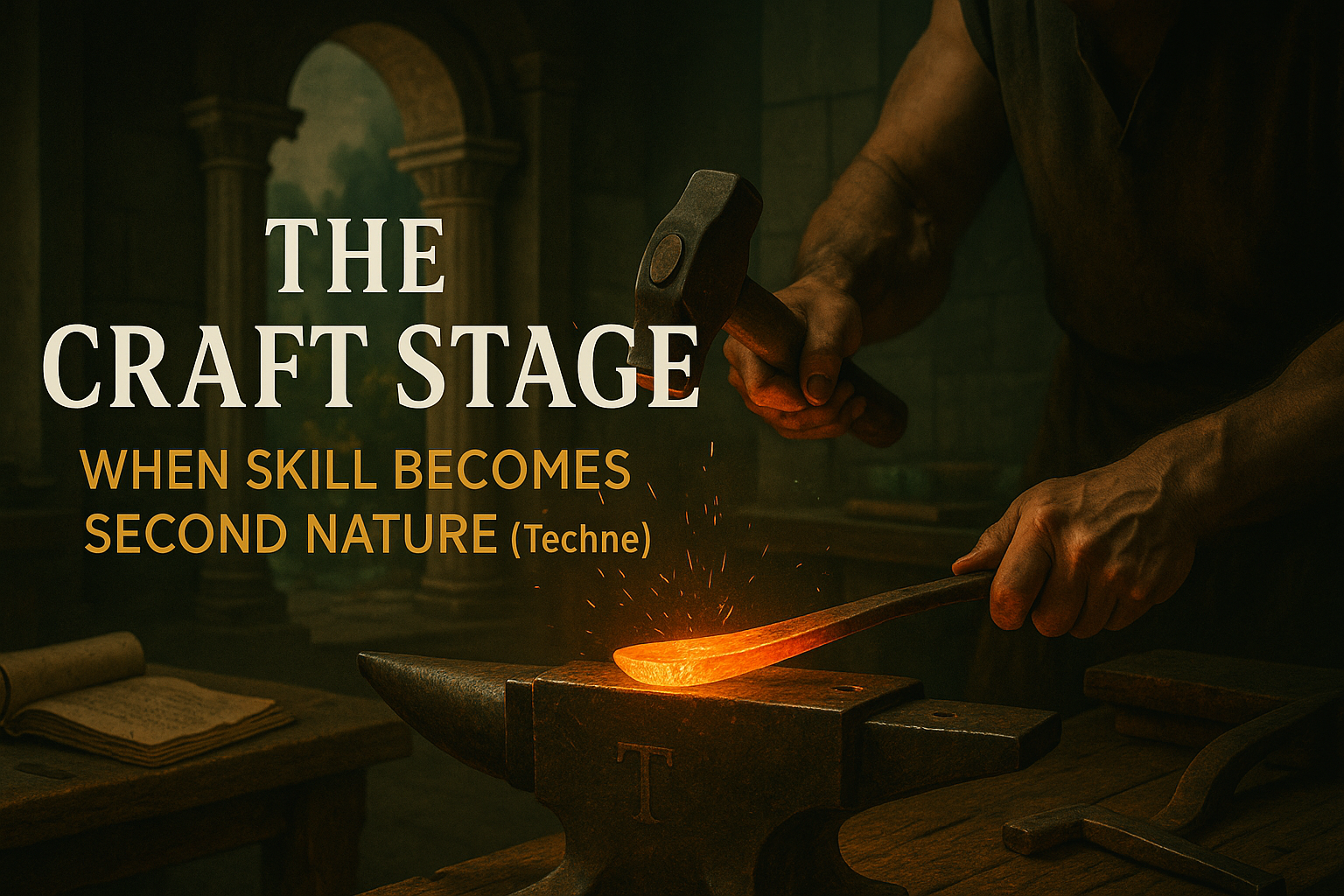
Output (Arete) is where internal mastery becomes external transformation. Discover how to bridge personal excellence to world-changing impact through systematic application of ancient wisdom.

Prosoche, the Stoic practice of disciplined reflection—transforms raw experience into actionable wisdom. Part 7 of The Greatness Flywheel series shows how systematic reflection accelerates excellence by preventing repeated mistakes and compounding learning.

Excellence of function. Not achievement or outcome, but becoming excellent through consistent act...
Practical wisdom. The capacity to discern the right action in specific situations, particularly k...
Courage. The willingness to face what's difficult rather than retreat to what's comfortable, acti...
Scientific or systematic knowledge—understanding that grasps not merely that something is true, b...
Human flourishing. The deep satisfaction of functioning as you were meant to function, living in ...
The opportune or decisive moment, the critical point in time when conditions align for effective ...
Attention to oneself; the continuous vigilant awareness of one's thoughts, judgments, and impulse...
Theoretical wisdom. The ability to see clearly, cutting through noise to identify what's actually...
The systematic knowledge and skill required to produce something well—craft, art, or applied expe...
Opinion, reputation, or common belief as distinguished from true knowledge (episteme). In ancient...
The state of being at work, actuality, or the full realization of potential. In Aristotle's metap...
A fundamental transformation of mind and heart—not mere regret, but a complete turning around of ...
The Greatness Flywheel is a six-stage self-reinforcing cycle that transforms excellence from a destination into a way of being. The stages are: Curiosity (obsessive questioning), Information (curated consumption), Processing (flow state integration), Craft (deliberate practice), Output (reckless creation), and Reflection (course correction). Each stage feeds the next, creating momentum that accelerates with each revolution.
Each flywheel stage corresponds to a Greek philosophical concept: Curiosity (Sophia - wisdom through wonder), Information (Logos - rational order), Processing (Physis - natural flow), Craft (Techne - skill mastery), Output (Arete - excellence), and Reflection (Prosoche - disciplined attention). This grounds the methodology in timeless wisdom while making it practically applicable.
W. Keith Campbell's flow state research validates the flywheel methodology. His meta-analysis shows conscientiousness (disciplined craft) as the primary predictor of flow states, and that flow emerges as internal reward for intense focus. This supports the flywheel's emphasis on craft-driven rather than validation-driven excellence.
Each stage has distinct characteristics: Curiosity feels like obsessive questioning, Information involves curated learning, Processing happens in flow states, Craft is deliberate practice without audience, Output is creating without caring about reception, and Reflection is honest assessment toward flourishing. Most people get stuck in one or two stages rather than completing the full cycle.
The Greatness Flywheel is unique because it's cyclical rather than linear, internally driven rather than externally validated, and philosophically grounded in ancient wisdom while scientifically supported by modern flow research. It treats excellence as a self-reinforcing system rather than an achievement, creating sustainable high performance through character development.
Organizations can build institutional flywheels by creating cultures that support all six stages: encouraging curiosity through questioning, providing high-quality information, designing for flow states, supporting craft development, enabling authentic output, and building reflection into processes. This creates systematic excellence rather than depending on individual heroics.
This series is part of a comprehensive approach to excellence and human flourishing. Get systematic frameworks and practical tools for transformation.
Distinguishing genuine self-optimization from elaborate avoidance strategies
Navigate the AI revolution with practical wisdom and strategic thinking